Arguably one of John Huston’s two or three masterpieces, The Asphalt Jungle is a tautly made, realistically detailed heist crime film that boasts fine portraiture of a dozen man, played by Hollywood’s best character actors.
Grade: A (***** out of *****)
| The Asphalt Jungle | |
|---|---|

Theatrical release poster
|
|
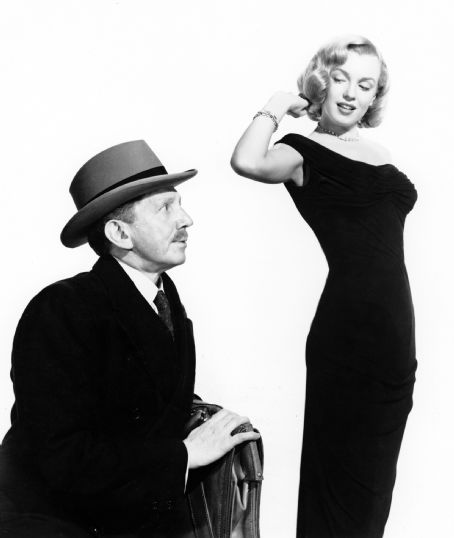
An elaborate jewel robbery is planned by criminal mastermind, Doc Riedenschneider Oscar nominee Sam Jaffe), with the financial backing of corrupt lawyer Alonzo D. Emmerich (Louis Calhern). Doc carefully assembles a group of semi-professional criminals and proceeds with his robbery. However, from the very outset the robbery and the subsequent escape fail, because of ill-fated circumstances.
John Huston directed Asphalt Jungle in a rather naturalistic noir style, which relies on the hard-boiled tradition, with its code of social decay.
Adapting W.R. Burnett’s novel to the screen, Huston and Ben Maddow instill the film with a gritty dialogue and a degree of authenticity, which was unmatched in films of that period.
One of the first films to depict crime from the point of view of the criminals, rather than the police, or law enforcers, Asphalt Jungle had a huge influence on the genre, manifest in the early work of Stanley Kubrick, and decades later, on Tarantino’s 1991 feature debut, Reservoir Dogs.
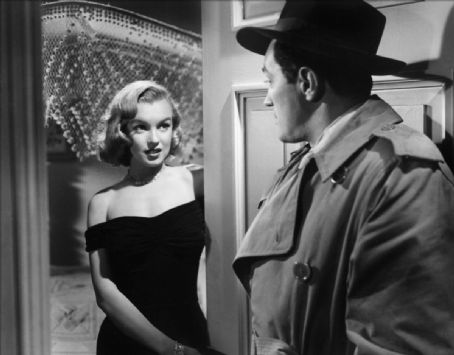
The broader context is not neglected either: The criminals are surrounded by and operate in a society that is almost as corrupt as they are. Society’s hypocrisy, illustrated by the crooked dealings of bad cops and the irresponsible judgments given by uninvolved onlookers, offers a bitter comment on the realities of a world that’s darker than night.
In contrast to Huston’s other noir films (“The Maltese Falcon,” “Key Largo,” both starring Humphrey Bogart), in this picture, the claustrophobic quality is less pronounced.
The few grotesque characters in “Asphalt Jungle” exist only on the periphery of the action, rather than at the core.
Though male-dominated, the ensemble features three great turns by women who would become stars in their own right. In two years, Jean Hagen would be Oscar-nominated for the popular musical, Singin’ in the Rain.
Marilyn Monroe, who has a pivotal role, added another panel to a quickly rising career that in the same year saw a secondar role in the Best Picture Oscar winner, All About Eve.
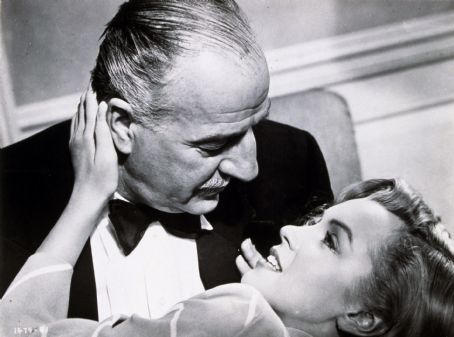
As many scholars have observed, Asphalt Jungle is a classic film noir in its exploration of despair and alienation, two of the genre’s most prevalent themes.
The failure of Doc and his associates to transcend the common nature of criminals also suggests the irony that marks many of Huston’s films.
This film serves as the dividing line between the John Huston and the new Huston. After this picture, Huston would adapt other classic literary works, such as The Red Badge of Courage, Moby Dick, and Tennessee Williams’ The Night of the Iguana (also an underestimated masterpiece).
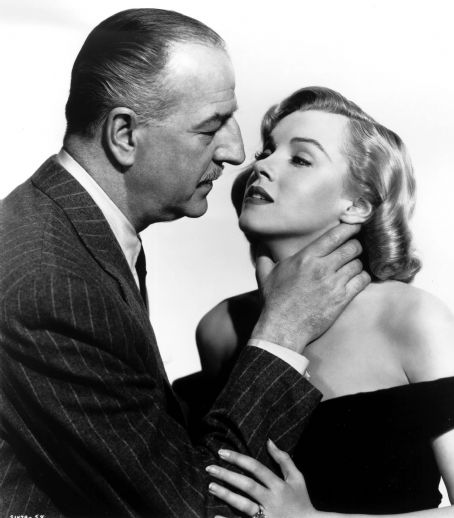
Many critics, such as the estimable James Naremore, have singled out the all-male milieu and the ultra-cynical view of such norms as romance and institutions such as marriage, but I disagree. Though the male criminals are at the center and largely sympathetic, at least three women play major roles in the tale, particularly in its last reel.
One of the most remarkable things about Asphalt Jungle is that was a mainstream studio movie, made at MGM under the new, tough leadership of Dore Schary. Equally notable is the fact that there was no inference (or interference) by the studio or censors with Huston’s work, which is relentlessly grim and uncompromisingly coherent and realistic in graphic detail.
Narrative Structure: Detailed Plot (Scene by Scene)
Criminal mastermind Erwin “Doc” Riedenschneider (Sam Jaffe) is released from prison after 7 years, whereupon he goes to see the bookie Cobby (Marc Lawrence) in an unnamed Midwest river city (Cincinnati, Ohio?).
Cobby arranges a meeting with Alonzo Emmerich (Louis Calhern), a high-profile lawyer, who becomes intrigued by Doc’s plan to steal jewelry worth of over one million dollars. Doc needs $50,000 to hire a “box man,” a driver, and a “hooligan,” to help him pull off the caper. Emmerich agrees to provide the money and offers to assume responsibility for disposing of the loot.
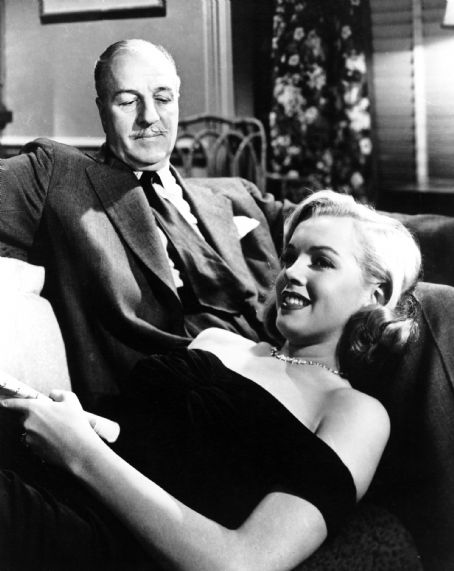
Doc first hires Louie Ciavelli (Anthony Caruso), a professional safecracker who, in turns, gets Gus Minissi (James Whitmore), a hunchbacked diner owner, as the getaway driver. The final member of the gang is Dix Handley (Sterling Hayden), a strong, dependable man who’s Gus’s friend.
In an emotionally crucial scene, Dix shares his dream with his Doll Conovan (Jean Hagen), who is in love with him, to buy back the horse farm that his father had lost during the Great Depression. Having lost ill-gotten gains betting on the horses, he needs the job to pay his debts.
During the meticulously planned crime–a 10-minute sequence–the criminals carry out their work in a calm, professional manner. Ciavelli hammers through a brick wall to get into the jewelry store, deactivates a door alarm and lets in Doc and Dix, then opens the main safe using explosive liquid (“the soup”).
Unfortunately, the explosion sets off the alarms of nearby businesses, bringing the police to the scene. On their way out, Dix has to slug a security guard, who drops his gun, wounding Ciavelli. The men get away unseen, but a police manhunt begins.
Ciavelli insists on being taken home by Gus. Dix and Doc take the loot to Emmerich, who confesses he needs more time to raise the cash. Broke, he had sent the private detective Bob Brannom (Brad Dexter) to collect sums owed to him, but Brannom returned only with excuses. Emmerich then plots to double cross the others with Brannom’s help. Emmerich suggests to Doc to leave the jewelry with him, but Doc and Dix get suspicious. Dix kills Brannom, when the latter pulls a gun but gets wounded himself. Dix wants to shoot Emmerich, but Doc persuades him not to. Doc tells the lawyer to contact insurance companies and offer to return the valuables for 25% of their value.
Emmerich disposes of Brannom’s body in the river, but the police find the corpse, along with the list of people who owe Emmerich money, and question him. He lies about his whereabouts, and after they leave, hey calls Angela Phinlay (Marilyn Monroe), his young mistress, to set up an alibi.
Under increasing pressure from Police Commissioner Hardy (John McIntire), police lieutenant Ditrich (Barry Kelley) beats the bookie into confessing in a vain attempt to save himself (he is arrested for corruption).
Hardy personally arrests Emmerich, who “saves” himself by committing suicide. Gus is picked up, but when the police break down Ciavelli’s door, they find they have interrupted his funeral.
Doc and Dix then separate. Doc asks a taxi driver to drive him to Cleveland, but is spotted at a diner by two policemen. Ironically, he gets arrested due to the fact that he spends to much time at a diner, watching voyeuristically a young, beautiful woman dancing to various jukebox songs for which he generously paid.
Doll gets Dix a car, and then, despite his initial refusal, insists on going along. When he passes out from loss of blood, Doll takes him to a doctor, who phones the police to report the gunshot wound. Dix regains consciousness after a transfusion and escapes before they arrive.
With Doll by his side, Dix makes it all the way back to his Kentucky horse farm across the Ohio River. In the film’s very last and touching shot, he stumbles into the pasture and collapses dead, surrounded by his beloved horses.
In his exemplary mise-en-scene, Huston treats the material with utmost respect and precision, avoiding any moralistic judgment on the characters on either side if the law. He shows in visually graphic detail the position and movements of each character before, during, and after the heist. There is no use of any gimmicks, and the absence of music during the robbery, relying on naturalistic sounds, heightens the tension involved in the entire process.
There were some concerns with the script’s detailed depiction of the heist and the fact that the character of Emmerich killed himself. However, neither the studio nor the censors interfered, and both the heist and the suicide remained in the final cut.
Despite its artistic achievements, the movie was not a major success, perhaps due to its downbeat tone and gloomy ending, though Huston’s lyrical fatalism is impressive. The picture reaffirmed Huston’s status as a major director, capable of handling diverse material.
And it made a bona fide star out of Sterling Hayden after nearly a decade in the business as an actor in B-level movies.
Cast:
Sterling Hayden as Dix Handley
Louis Calhern as Alonzo D. Emmerich
Jean Hagen as “Doll” Conovan
James Whitmore as Gus Minissi
Sam Jaffe as “Doc” Erwin Riedenschneider
John McIntire as Police Commissioner Hardy
Marc Lawrence as Cobby
Barry Kelley as Lt. Ditrich
Anthony Caruso as Louis Ciavelli
Teresa Celli as Maria Ciavelli
Marilyn Monroe as Angela Phinlay
William “Wee Willie” Davis as Timmons
Dorothy Tree as May Emmerich
Brad Dexter as Bob Brannom
John Maxwell as Dr. Swanson
Uncredited:
Alex Gerry as Maxwell
Tom Browne Henry as James X. Connery
Don Haggerty as detective Andrews
James Seay as detective Janocek
Henry Rowland as Franz Schurz, German taxi driver
Strother Martin as 22-year-old in police lineup
Helene Stanley as Jeannie
Henry Corden as man in police lineup
Credits:
Directed by John Huston
Screenplay by Ben Maddow, Huston, based on The Asphalt Jungle 1949 novel by W. R. Burnett
Produced by Arthur Hornblow Jr.
Cinematography Harold Rosson
Edited by George Boemler
Music by Miklós Rózsa
Production company: Metro-Goldwyn-Mayer
Distributed by Loew’s Inc.
Release date: May 12, 1950
Running time: 112 minutes
Budget $1,232,000
Oscar Context:
Oscar Nominations: 4
Director: John Huston
Screenplay: Ben Maddow and John Huston
Supporting Actor: Sam Jaffe
Cinematography (b/w): Harold Rosson
Oscar Awards: None
In 1950, All About Eve swept most if the Oscars, including Best Picture, Director (Jospeh L. Mankiewicz), and Supporting Actor (George Sanders).











